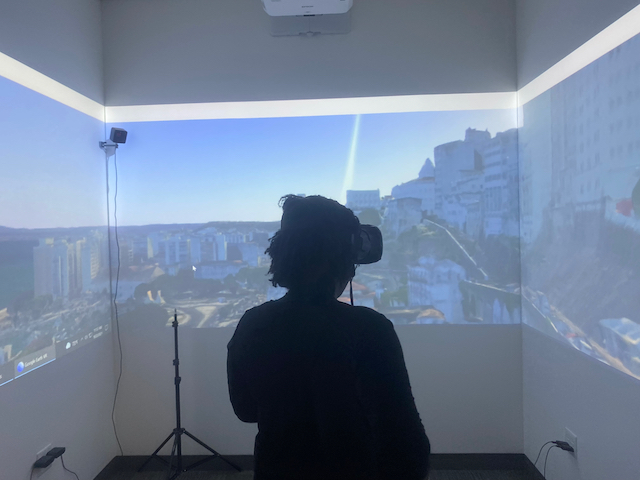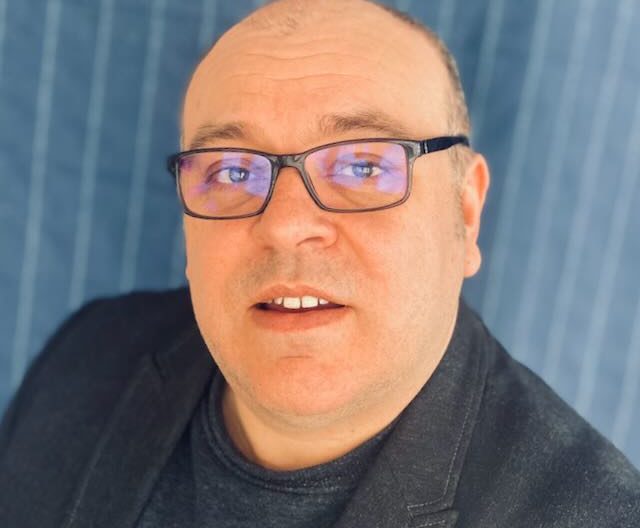Learning through Immersive projects – From VR to Immersive Installation
12th July 12-2pm, Teaching and Learning Centre TLC 220 (The Digital Playground). To book on this event please click this link (open to Durham Uni Staff). Note the event includes lunch and bookings will close on 7th July.
In this face to face talk and workshop we’ll explore the work of the Askwith Kenner Global Languages & Cultures Room at Carnegie Mellon University in Pittsburgh. A room packed with technology, from smart screens to VR, classroom, event space and lab. A room designed to connect student to cultures outside their own and better understand the real world through virtual worlds. Pittsburgh is a centre for VR research and development, and draw directly from connections with Oculus Labs and CMU’s Human-Computing Interaction Department.

Through a series of short activities we’ll explore what a pedagogy for VR looks and feels like and ask how can we truly harness new technology to provide engaging learning experiences? How can we move beyond the wow-factor and facilitate learning in immersive environments? We will use examples from our room, including student projects, commissioned projects and findings from our research. Our aim for the session is to provide concrete examples and strategies for content creation, project-based learning and research.
We’ll draw on multi-disciplinary research; exploring connections in human-computer interaction, language learning, architecture, games design and digital humanities, to design and plan our own experiences and address some of the challenges for students and educators engaging with this exciting and demanding technology.
Workshop Agenda
- A short overview of some of the latest developments in Immersive Technologies and how these might be leveraged in Education.
- Showcase of current projects in the Global Languages & Cultures Room
- Thinking Spatially, exploring content in immersive spaces, short exercises for exploration, play and experimentation in VR and AR.
Stephan Caspar
Assistant Teaching Professor in Media Creation and Multicultural Studies, Dept. Modern Languages, Carnegie Mellon University.

Stephan has a background in creative media and design, having initially trained as a filmmaker before moving into teaching & learning. He worked in film production and television broadcasting, including the BBC as a Content Producer, before training as and becoming Head of Creative Arts at Fareham College of Further Education in Hampshire, UK.
In 2014 Stephan moved to a role at the University of Southampton leading the Digital Learning Team. This award winning team helps researchers and educators in the creation of learning materials and media content, and supports the adoption of new technologies for teaching and scholarship. Working with academic teams, in storytelling for audiences across the globe, through online courses, social media and public engagement of science, humanities and the arts.
In 2018 Stephan joined the Department of Modern Languages at Carnegie Mellon University in Pittsburgh. Here he works as Director for the Askwith Kenner Global Languages & Cultures Room, supporting language learning and cultural study through the use of immersive technologies. He is currently exploring ways VR can be readily adopted into the curriculum as an effective teaching activity and continues to create content to support languages and culture.
Stephan’s courses include Multicultural Pittsburgh, exploring language and culture through Virtual Reality, Podcasting: Language and Culture, Language Acquisition and Technology. Everyday Learning: Designing Learning Experiences in Times of Unrest and Uncertainty and the Dietrich College Grand Challenges Course Sport, Culture, Conflict and VR These project-based course introduce students to digital storytelling, taught as active workshop sessions supported by theory and practice.
Stephan continues his work as an artist practitioner, in virtual reality creation, immersive installation and 360˙ documentary. His work has been highlighted in publications, podcasts and talks, and is a regular contributor to The Playful Learning Conference in the UK.
You can follow Stephan on twitter @dotsandspaces and read about his work in his weekly newsletter The Spaces In Between.
